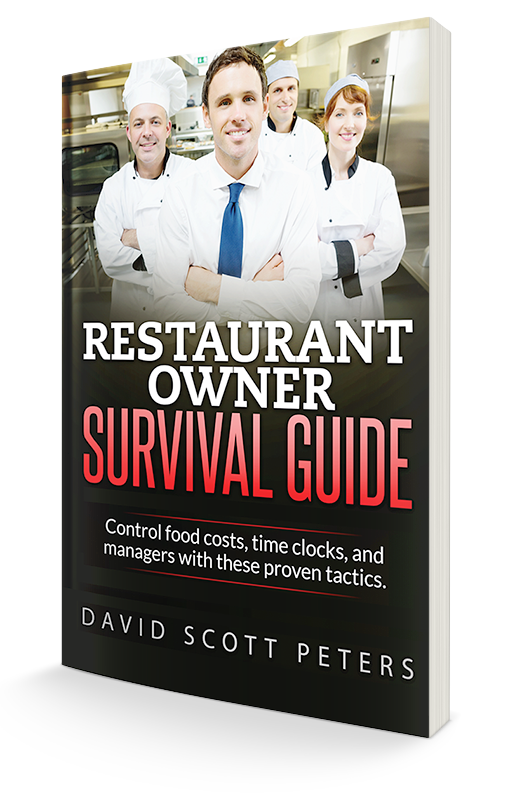How to Give Your Restaurant Guests a Great Dining Experience
As a starting point, let’s agree we are not in the restaurant business. Nope, we are in the hospitality business.
If the restaurant business was about competing only on the food we prepared and sold, we would be competing with a gas station. And a breakfast place would be competing with a steakhouse.
The thing that allows you to differentiate yourself is to offer the dining experience your diners expect.
Now, don’t get me wrong. Food is a major part of what we do and one Italian restaurant is directly competing with another Italian restaurant, etc. But we need to first understand what our jobs are and how we can use service to separate ourselves from the masses.
Our job is to execute on the promise of Restaurant 101 first and foremost. Delivering on this promise means giving our guests a clean, safe environment to dine, great food and “WOW” customer service. Assuming your place is clean, safe and you put out great food, your focus needs to turn to providing a WOW customer service experience. Service is what separates you from the mass of independent and chain restaurants all around you.
What does it mean to deliver great service? Is that different from delivering on the promise of great hospitality? Some say the difference is in semantics, but we believe there is a difference in the meaning of hospitality and service here at Restaurant Systems Pro.
Great service is the execution of the steps of service on a shift-by-shift basis. It’s introducing yourself at the table when you take an order. It’s checking back in three minutes after the food has been delivered to a table to see if everything is good. It’s making sure drinks are refilled in a timely basis.
Provide great hospitality
Great hospitality is an extension of great service, taking it to another level.
Here at Restaurant Systems Pro, hospitality is a great dining experience that goes far beyond great food and great service. A truly great dining experience is when our guest’s needs are anticipated and met for them, resulting in 100 percent satisfaction. It’s to always strive to make every moment memorable.
The key word is memorable.
Great hospitality is about making each guest’s dining experience memorable. The part that isn’t so apparent in that statement is that YOU don’t make a dining experience memorable; the people a guest is dining with do. For something to really stick, it has to be anchored to a feeling. For example, when I would hire new employees in my restaurants, I wanted to make sure they had the same love of food and the restaurant business he did. As a young chef I was sure that by creating incredible food I would do exactly that. I just needed to find people who wanted to deliver on service to match my commitment to food.
When I interviewed people I would ask them to tell me about their favorite food memories. I expected I would hear about incredible service and an equally incredible restaurant. But that’s not what I got. Instead I got answers like, “a hot dog with my grandpa at my first baseball game,” “grandma’s apple pie at Thanksgiving dinner,” and the list went on. None of the stories were about a restaurant; they were about an experience with someone where a memory was created.
What I learned is great food alone did not create a memory. If my team delivered WOW customer service, it alone did not create a memory. In fact, it was less about me and my team and more about the guest and who they were dining with. It was the team anticipating the needs of their guests — and never breaking the connection the diners had together — that could make the experience memorable.
Hospitality in practice
To do this effectively takes small things that should go unnoticed. For example, I referred to a few examples of steps of service earlier. Here is how they would be executed with hospitality in mind.
When the server introduces himself or herself at the table, it isn’t, “Hi, my name is,” when they first greet a table. It’s about connecting with the guest first, finding something at the table to start a bonding conversation, such as noticing a shopping bag and saying, “Oh, I love that store, too.” After the server makes a connection with the guests, explains the menu and takes their drink order, the server starts to leave the table, turns back and says, “Oh, by the way, my name is David, and I will take care of you tonight.”
Then instead of checking back in three minutes after the food has been delivered and asking my least favorite question in the hospitality business, “Is everything ok?,” (because we strive to make your dining experience ok?) it’s about asking specific questions, such as is your steak cooked to the perfect temperature or isn’t the shrimp scampi to die for?
Another example is drink refills. Don’t interrupt the guests to ask if they want a refill. Drop a new one off anytime the drink is a quarter full and remove the old one.
See, great hospitality is an extension of great service, it’s the art of making sure your guests’ needs are anticipated and met for them before they ever have to notice things are not right or they need something. This allows them to create memories with the people they are with. And when that happens, your restaurant is the place they remember because when they dine with you, they always have the best time.
Tell me, what’s your favorite food memory?





